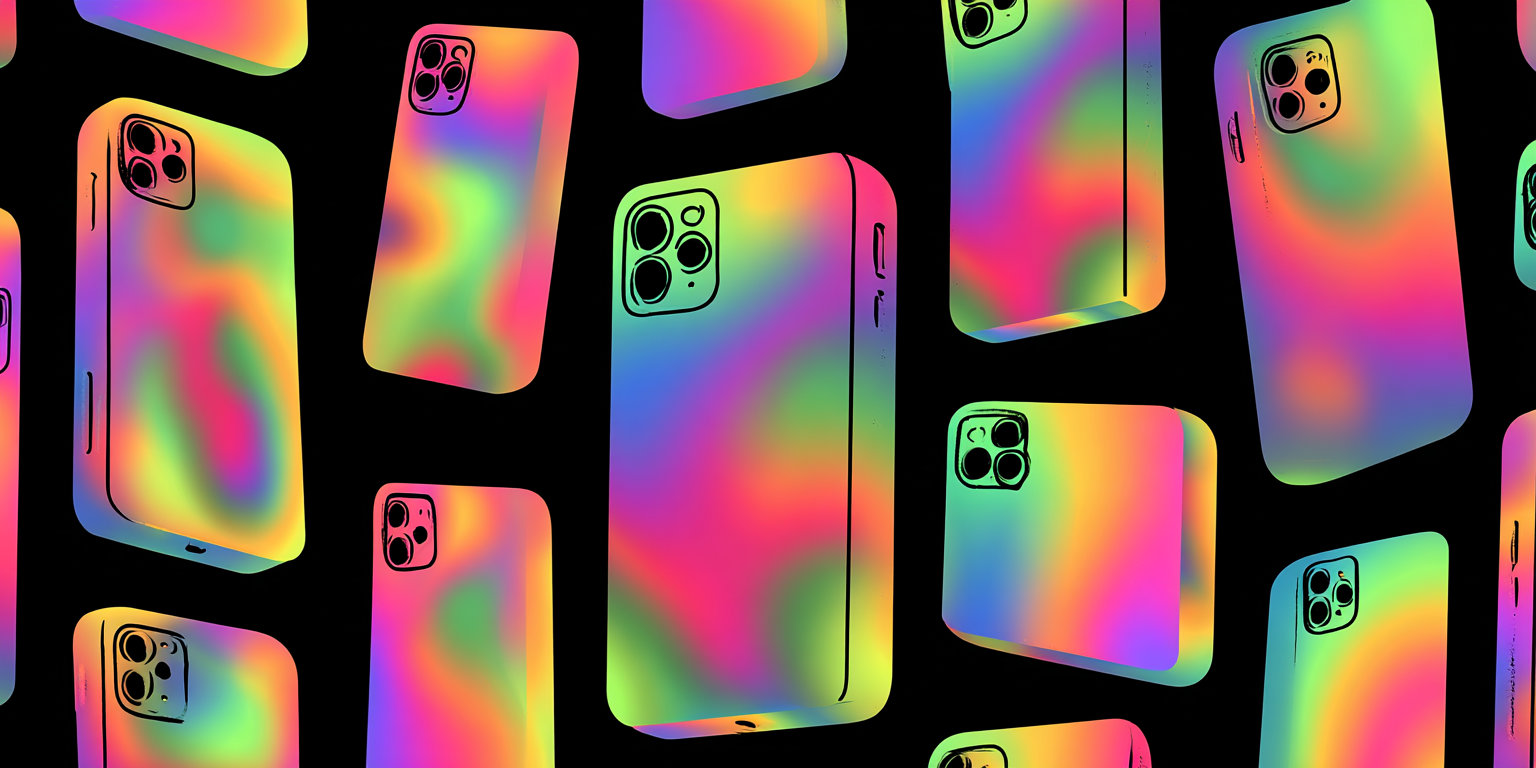
Digital wellness: balancing screen time and mental health
Written by Mat
I'm typing this at 19:15 on a Tuesday evening, and I've just realised I've been staring at my screen for about nine hours straight. I've just finished a bottle of eye drops that were on my desk, next to the empty tube of rehydration tablets that have kept me going through this hot August day. My neck aches, and I've got that familiar jittery feeling that comes from too much blue light and not enough actual human interaction. Sound familiar?
It's a bit ironic, really. I've spent the last 25 years building websites and helping businesses establish their digital presence, all while quietly battling my own complicated relationship with technology. I love what screens enable us to do - they've revolutionised how we work, connect, and create. But I've also seen how they can slowly chip away at our mental well-being when we're not paying attention.
The slow creep of digital overwhelm
The thing about screen time is that it doesn't hit you all at once. It's a gradual process, like slowly turning up the volume on a radio until you realise you can't hear yourself think. One day, you're using your phone to stay connected with friends, and the next, you're mindlessly scrolling through social media in bed, wondering why you feel so anxious and disconnected.
I remember the exact moment I realised I had a problem. I was on a beautiful hiking trail in the mountains near Valencia - the kind of place that usually fills me with joy and peace. But instead of being present with the stunning views and fresh air, I was thinking about an email I'd received that morning. Not even an urgent email, just a regular work thing that somehow had colonised my entire mental space.
That's when it hit me: my screens weren't just affecting my work-life balance, they were affecting my ability to be fully present in my actual life.

What this stuff does to your brain
Let's be honest about what excessive screen time does to our brains. The constant stream of notifications, the endless scroll of content, the pressure to respond immediately to every message - it's like putting our nervous system on a permanent state of alert. And our brains weren't designed for this level of constant stimulation.
I've noticed that when I spend too much time on screens, especially late at night, my sleep quality plummets. I lie in bed with my mind racing, replaying conversations from earlier in the day or worrying about projects that aren't even urgent. It's as if my brain has forgotten how to go into rest mode.
The research backs this up, too. Studies show that excessive screen time can contribute to anxiety, depression, and sleep disorders. Blue light from screens messes with our natural circadian rhythms, making it harder to wind down at night. And social media can trigger feelings of inadequacy and FOMO that leave us feeling rubbish about our own lives.
But here's the thing - I'm not going to tell you to throw your phone in the bin and go live in the woods. That's not realistic, and frankly, it's not necessary. The goal isn't to eliminate screens; it's to develop a healthier relationship with them.
Finding what works
So, how do we create this balance? Through trial and error (and quite a bit of the latter), I've discovered some strategies that actually work for me.
The notification audit
I went through every single app on my phone and asked myself: "Does this really need to interrupt my life?" The answer was almost always no. I turned off notifications for everything except calls, WhatsApp, Signal and my calendar. The world didn't end. In fact, it got a lot quieter.
Phone-free bedroom
Our bedroom is now a phone-free zone. I started charging my phone in the lounge overnight. This single change transformed my sleep quality and made mornings feel more peaceful.
The 3-2-1 rule
I try to follow this: no work 3 hours before bed, no food 2 hours before bed, no screens 1 hour before bed. I'll be honest, I don't always manage this (especially the screen bit), but when I do, I sleep so much better.
Being picky about what I consume
Instead of mindlessly scrolling, I try to be intentional about what I'm consuming online. I've unfollowed accounts that make me feel bad about myself and curated my feeds to include more positive, educational, or inspiring stuff.

The work challenge
The tricky part is that for many of us, screens are essential for work. We can't run a web design company without computers. But I've learned to create boundaries even within work.
I take regular breaks using the Pomodoro Technique - 25 minutes of focused work followed by a 5-minute break away from the screen. During these breaks, I might do some stretches, make Kat a cup of tea, or just stare out the window. It sounds simple, but it makes a huge difference.
I've also started having "walking meetings" with clients when possible. Instead of yet another Zoom call, we'll talk on the phone while I walk around our neighbourhood. It's amazing how much more creative and focused I feel when I'm moving my body instead of sitting hunched over a screen.
No more news
Last year, I did something that felt quite radical - I took a complete break from all news. No news websites, no newspapers, no news apps. Nothing. It was weird at first because I felt like I was missing out on everything. But after a few weeks, something interesting happened: I stopped caring about what I was missing.
Instead of spending time each morning getting wound up by the latest political drama, I started reading actual books again. I felt more present in my own life instead of constantly worrying about things I can't control.
I wrote a whole post about this if you're interested: Why I'm taking a break from the news
The physical stuff
Your body takes a beating ,too. A study by the WHO from 2021 demonstrated a relationship between working long hours and premature death. Read more about that here.
We bought standing desks last year and they made a huge difference: The standing desk revolution. Kat's previously written about improving your eye care and another post about how to work from home without injuring yourself.
These are small changes, but they've made a massive difference to how I feel physically at the end of the day.
If you've got kids
If you have children, this conversation becomes even more important. Kids are growing up in a world where screens are everywhere, and they're developing their relationship with technology based on what they see us doing.
I don't have children, but I've watched friends struggle with this balance. The most successful approaches I've seen involve creating family screen time rules that everyone follows, including the adults. Phone-free family dinners and modelling healthy screen habits seem to work better than just restricting kids' access while you continue using devices constantly yourself.
The bigger picture
Here's what I've learned after years of wrestling with this: digital wellness isn't about perfection. It's about awareness. It's about recognising when our relationship with technology is serving us and when it's not.
Some days, I still spend too much time on screens. Some evenings I still fall into the social media rabbit hole. But now I notice it happening, and I can make adjustments. I can choose to put the phone down, go for a walk, or have a real conversation with Kat instead of both of us sitting silently on our devices.
The goal isn't to eliminate technology from our lives - it's to make sure we're using it intentionally rather than letting it use us.

Starting small
If you're feeling overwhelmed by your own screen time, start small. Pick one change and try it for a week: turn off non-essential notifications, create a phone-free zone in your bedroom, take a 10-minute walk without your phone, have one meal a day without any screens, or set a specific time to stop checking emails each day.
Notice how you feel. You might be surprised by how much mental space opens up when you're not constantly processing digital information.
The paradox
The ultimate irony is that you're reading this on a screen right now. And that's okay! Technology isn't the enemy - it's how we use it that matters. The same device that can trigger anxiety with endless notifications can also help us stay connected with loved ones, learn new skills, and run our businesses.
The key is being intentional about our choices. Ask yourself: Is this screen time adding value to my life, or is it just filling time? Am I using technology to enhance my relationships and productivity, or am I letting it replace real connections and meaningful activities?
Digital wellness isn't about going back to some imagined simpler time. It's about moving forward with intention, creating boundaries that work for your life, and remembering that the most important moments usually happen when we're looking up from our screens, not down at them.
Your mental health is worth the effort. And trust me, your future self will thank you for creating these boundaries now, before digital overwhelm becomes digital burnout.
Now, if you'll excuse me, I'm going to close my laptop and go have a proper conversation with my wife. Some things are still better done offline.
Tagged under: Hot topics Social media Screens Health Psychology Inside my brain